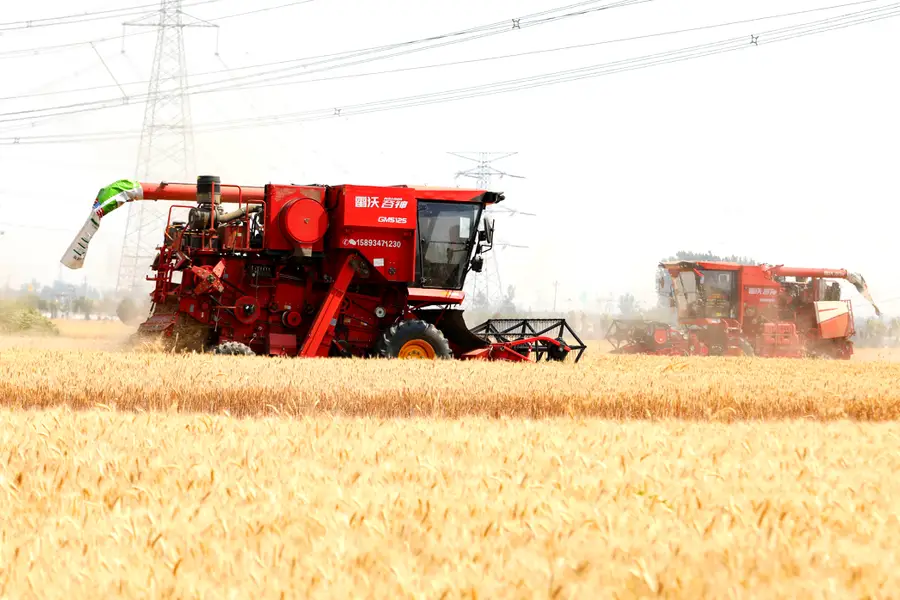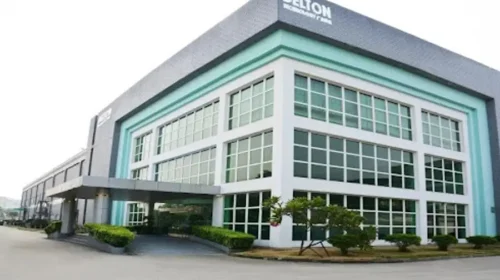Weichai Lovol planted at forefront of new Chinese agricultural revolution

China’s leading maker of agricultural equipment has filed for a Hong Kong listing, forecasting the market for its products is set for explosive growth
Key Takeaways:
- Weichai Lovol has filed for a Hong Kong IPO that could raise around $500 million, providing valuable cash for expansion as China modernizes its agricultural sector
- The company expects the Chinese market for intelligent agricultural equipment to grow by more than 40% annually over the next few years, boosted by government policy
By Doug Young
China is on the cusp of an agricultural revolution, according to Weichai Lovol Intelligent Agricultural Technology Co. Ltd., which submitted its application for a Hong Kong IPO at the end of last week.
While that assertion by China’s leading seller of tractors and harvesters sounds a bit self-serving, it could actually be true, which would position Weichai Lovol for some explosive growth. While much is written about China’s desire to be self-sufficient in high-tech products like microchips, the country’s similar desire for self-sufficiency in food production is probably just as strong, if not stronger.
The recent U.S.-China trade war has highlighted how much China relies on imports to feed not only its 1.4 billion citizens, but also its huge herds of cattle, pigs and other livestock. To mitigate that reliance, the country is implementing wide-ranging policies to modernize its agricultural sector. The aim is to transform the country from one that was composed of hundreds of thousands of small family-run farms just a couple of decades ago to a more Western-style system of mega-farms using modern agricultural methods and machinery to boost efficiency.
Weichai Lovol looks well positioned to benefit from that transition, thanks to its dominant position in China’s overall agricultural machinery market, and its even more dominant spot in the smart agricultural machinery market. The company looks relatively well run, based on financial information contained in its listing document, though its growth of the last two years isn’t particularly spectacular.
One notable place where it’s lacking is in its margins, which are notably lower than its global peers. That suggests Weichai Lovol may not be as efficient as its global rivals, and also probably reflects the fact that pricing pressure in China is greater than other global markets.
“China has identified intelligent agricultural machinery as a strategic tool to safeguard food security. Through systematic policy arrangements, the nation is accelerating the industry’s upgrade,” Weichai Lovol said in its listing document. It cited a couple of government plans, the “Plan for Accelerating the Construction of an Agricultural Powerhouse (2024-2035),” and the “National Smart Agriculture Action Plan (2024-2028),” as reflecting the country’s determination to modernize its agricultural sector over the next few years.
Such support almost certainly means the government will throw huge sums of money at the sector in many forms, from grants to low-interest loans, to help its modernization. As that happens, China’s market for intelligent agricultural machinery is expected to grow by an average of 43.6% annually over the next five years from just 11.8 billion yuan in 2024 to 104 billion yuan in 2023, according to third-party market data in the listing document.
That kind of growth will raise the penetration rate for smart agricultural equipment to 33.1% in 2030 from just 7.2% last year, roughly matching the global penetration rate that was 31.6% last year and is expected to rise to 34.7% by 2030. As China builds up a new generation of mega-farms using intelligent agricultural equipment, its agricultural workforce is expected to drop to just 30 million people by 2050, from 160 million in 2024.
China reliant
Based in Eastern China’s Shandong province, Weichai Lovol is currently 61%-owned by Hong Kong-listed Weichai Power (2338.HK), which first announced its plan to spin off its agricultural equipment arm in April. In its own separate announcement last Friday, Weichai Power called the decision to spin off Lovol “consistent with the governmental policies in improving core competitiveness of state-owned assets and enhancing international influence.”
Such a spinoff indeed looks like a good idea at this time, since it would provide Lovol with some major new financial resources to accelerate its development of intelligent agricultural equipment to feed the coming boom. The company has hired leading domestic investment bank CICC as its sole underwriter, suggesting the listing will be sizable.
With the company likely to be valued at $2 billion to $3 billion, based on our estimates, the listing could raise around $500 million. That would nearly double Lovol’s existing cash, which totaled 4.78 billion yuan ($665 million) at the end of last year.
While Weichai Lovol is forecasting big growth in the next five years, there’s no indication of that coming boom in its financials from the past three years. The company’s revenue grew by 18.4% last year to 17.4 billion yuan from 14.7 billion yuan, which is certainly respectable but not eye-popping. The company’s revenue actually contracted 8% in 2023, as it blamed a decrease in its sales of harvesting machines without giving much additional explanation.
Tractors and harvesting machines are the company’s two main product lines, the former accounting for 52% of sales last year and the latter for 41%. Notably, harvesting machines aren’t doing as well as tractors, dropping from their previous level of supplying 46% of the company’s revenue in 2022. The company’s exports are growing but still relatively limited, rising to about 10% of revenue last year from about 6% in 2022.
Its profit last year rose to 957 million yuan from 871 million yuan in 2023, representing a 9.8% increase.
As we noted earlier, Weichai Lovol’s gross margins are one area where it notably lags its global peers. That figure stood at 13.2% in the last two years, or less than half of Deere & Co.’s (DE.US) figure of about 28% and also well below the 21% for CNH (CNH.US). Deere currently trades at a price-to-earnings (P/E) ratio of 25, while CNH trades a bit lower at 16. A ratio in that range would value Weichai Loval at anywhere from 15.3 billion yuan at the lower end to as much as 23.9 billion yuan.
The company is China’s clear leader in both the overall agricultural equipment and intelligent agricultural equipment markets, with 21.2% share and 46%, respectively. That should position it well if China’s coming agricultural revolution really materializes, which seems likely. Though we should also note that the company’s domestic and global peers will also get attracted by such explosive growth, which could sharply heat up competition in this up-and-coming field.
To subscribe to Bamboo Works weekly free newsletter, click here




